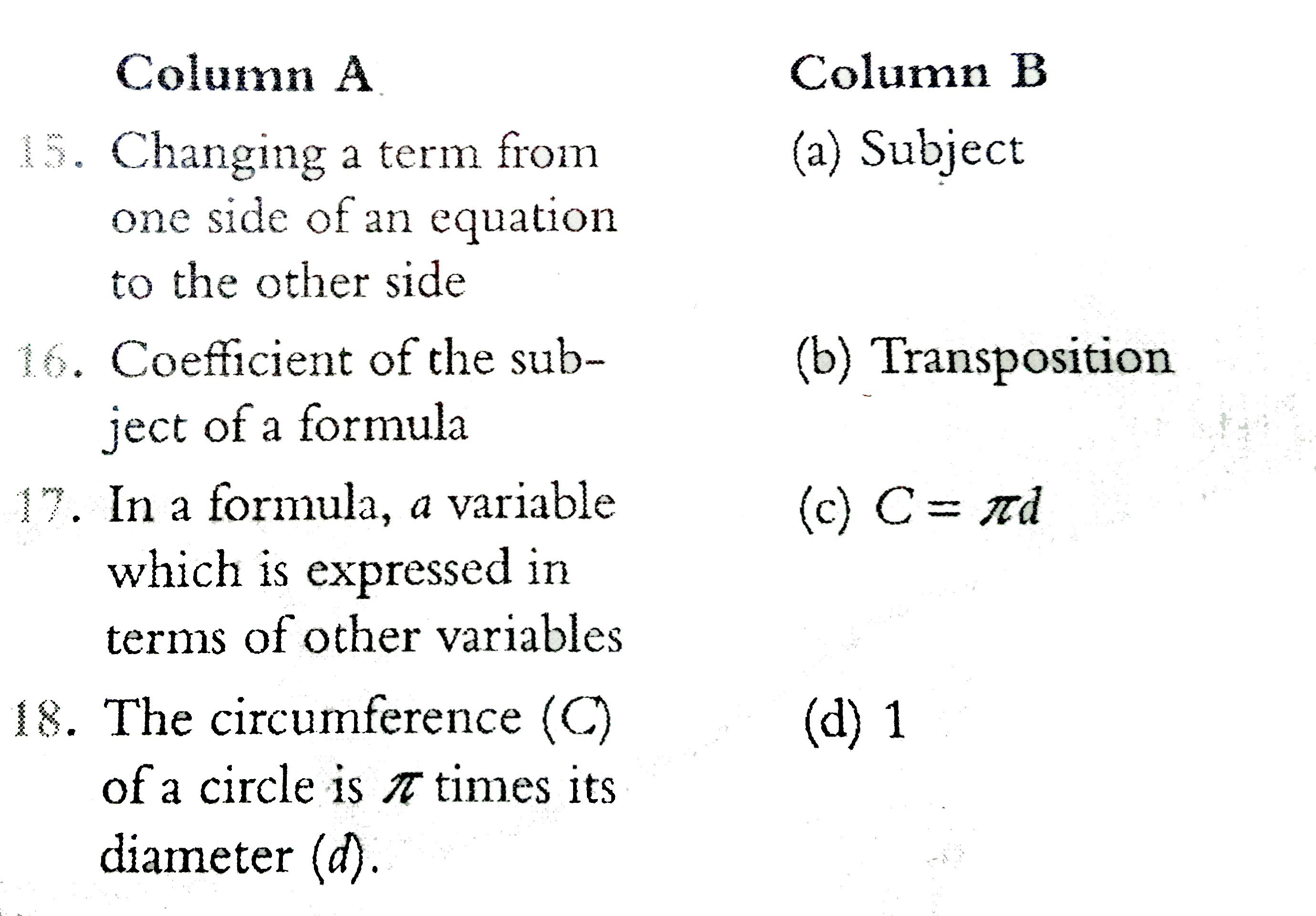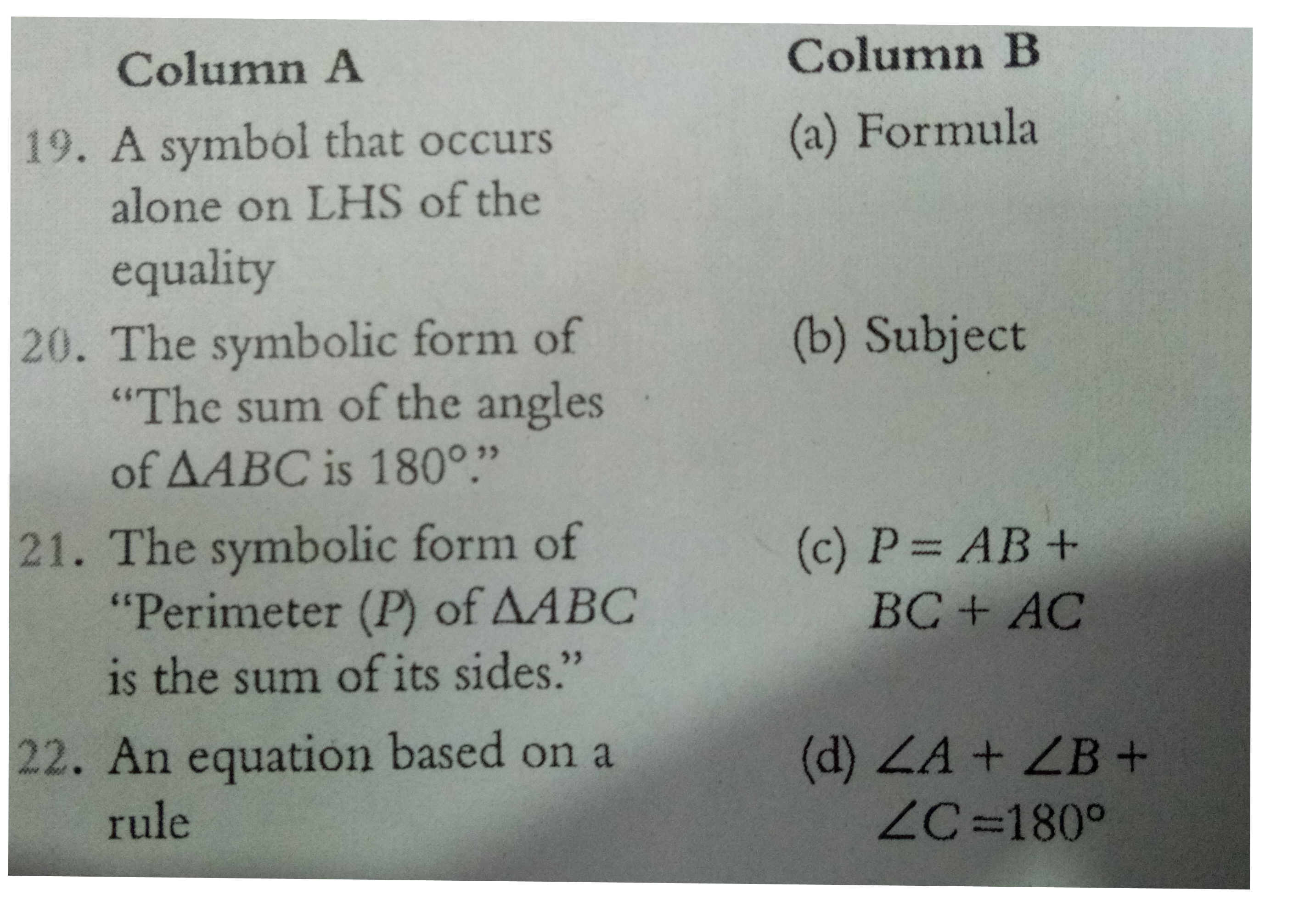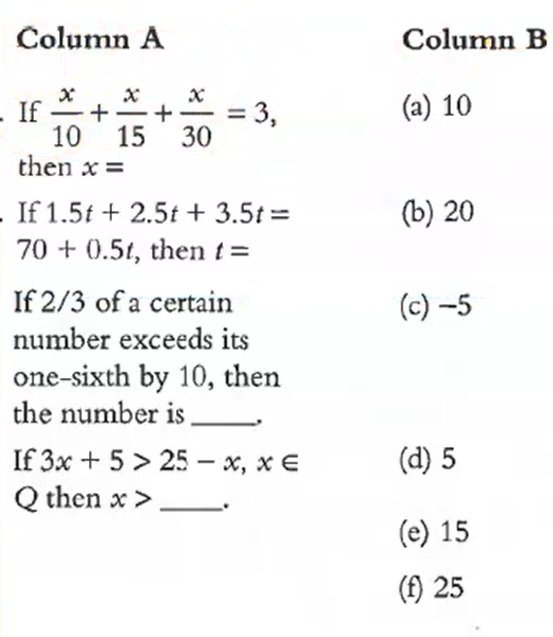एक निश्चित जल कि मात्रा को गर्म कर विभिन्न समयान्तरालों पर उसका तापमान निम्न प्रकार देखा गया :-

समय ताप मान ग्राफ t=0 से t=15 मिनट बनाइए। अपने ग्राफ का प्रयोग निम्न प्रश्नों का उत्तर देने में कजिए : -
कितने मिनट बाद तापमान
70
∘
C
होगा ?
The correct Answer is:9 मिनट
Step by step video, text & image solution for एक निश्चित जल कि मात्रा को गर्म कर विभिन्न समयान्तरालों पर उसका तापमान निम्न प्रकार देखा गया :- समय ताप मान ग्राफ t=0 से t=15 मिनट बनाइए। अपने ग्राफ का प्रयोग निम्न प्रश्नों का उत्तर देने में कजिए : -कितने मिनट बाद तापमान 70 ∘ C होगा ? by Maths experts to help you in doubts & scoring excellent marks in Class 9 exams.
Updated on:21/07/2023Topper's Solved these Questions
Similar Questions
एक धातु की गेंद को गर्म कर विभिन्न अंतरालों पर उसका तापमान ज्ञात किया , जैसा कि सरणी में दिखाया गया है :-

समय - ताप ग्राफ खींचिए और निम्न प्रश्नों का उत्तर दीजिए :-
समय t = 5 सेकंड पर गेंद का तापमान क्या है ?
View Solutionसंचयी बारम्बारता बन्टन का उल्लेख करें।
View SolutionDetermine the point of symmetry of a regular hexagon.
View SolutionDtermine the images of the following figure about the given line :
View SolutionMatch the following Column A to Column B

View SolutionMatch the following Column A to Column B

View SolutionMatch the following Column A to Column B

View SolutionThe inequation represented by the graph given below is :
View SolutionThe inequation that best describes the graph given below is _________
View SolutionThe inequation that best describes the following graph is _________
View SolutionAt x=0, value of (dy)/(dx) is : ltimg src="https://d10lpgp6xz60nq.cloudfront.net/physics_images/ALN_PHY_R04_E01_024_Q01.png" width="80%"gt
View Solutionतापमान व समय के मध्य ग्राफ #!#ऊष्मा का जल तुल्यांक #!#ऊष्मा धारिता व बर्फ को जमने में लगा समय
View Solutionतापमान व समय के मध्य ग्राफ पर आधारित प्रशन #!#जल तुल्यांक
View Solutionनिम्न में से किस घर्षण का मान सर्वाधिक होगा
View SolutionAt x=0, value of dydx is :
ltimg src="https://d10lpgp6xz60nq.cloudfront.net/physics_images/ALN_PHY_R04_E01_024_Q01.png" width="80%"gt
View Solution→A+→B+→C=0
then ∣∣→B∣∣ and ∣∣→C∣∣ are:
ltimg src="https://d10lpgp6xz60nq.cloudfront.net/physics_images/ALN_PHY_R02_E02_003_Q01.png" width="80%"gt
View Solution
